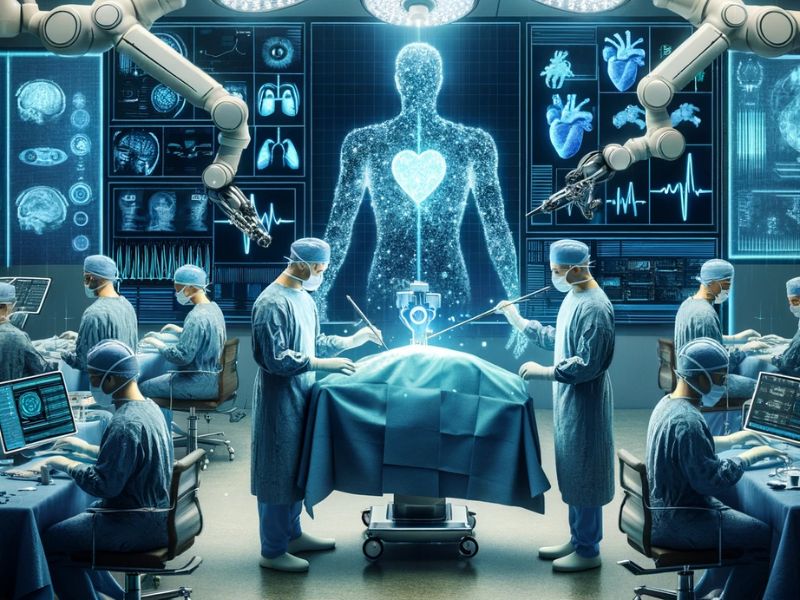
The cutting edge of surgery: the integration of AI
How Artificial Intelligence is Transforming Operating Rooms
The integration of artificial intelligence (AI) in surgery is marking the beginning of a revolution in the medical field, promising to enhance the precision, safety, and efficiency of surgical procedures. AI, through machine learning and extensive data analysis, is developing robust predictive algorithms that assist surgeons in pre-operative planning, intra-operative guidance, and optimization of surgical resources utilization.
The Growing Role of AI in Surgery
AI is emerging as a crucial tool in pre-operative planning, allowing surgeons to precisely outline surgical procedures based on existing medical records and imaging. These AI systems are particularly effective in laparoscopic and robotic surgery, where they can provide information or guidance on a video screen during the operation, thus improving surgical decision-making and execution.
Intraoperative Assistance through AI
AI not only assists in the planning phase but also provides support during the surgical procedure, analyzing operations in real-time and offering decision-making support to surgeons. For example, it can identify potential polyps during a colonoscopy or anticipate the next steps of the operation, providing additional supervision and suggestions to optimize surgical action.
AI in Medical Training and Education
In addition to practical support, AI offers learning tools for surgeons at all levels of their careers, tracking their performances or teaching new skills. This could help bridge the limited teaching capacity of specialized surgeons and provide an “expert companion” during operations, offering insights into similar cases and predicting future surgical events.
Challenges and Ethical Considerations
Despite its enormous potential, AI in surgery also raises ethical, legal, and regulatory issues. One of the main concerns relates to liability in case of AI-guided errors. Experts agree that, being a decision support tool, the final decision must remain in the hands of the clinician, underscoring the importance of understanding the performance and limitations of AI models.
Artificial intelligence is opening new horizons in surgery, promising to make procedures safer, more precise, and efficient. However, for its full potential to be realized, it will be crucial to address ethical and practical challenges, ensuring that the technology is implemented responsibly and patient-centered.
Sources



